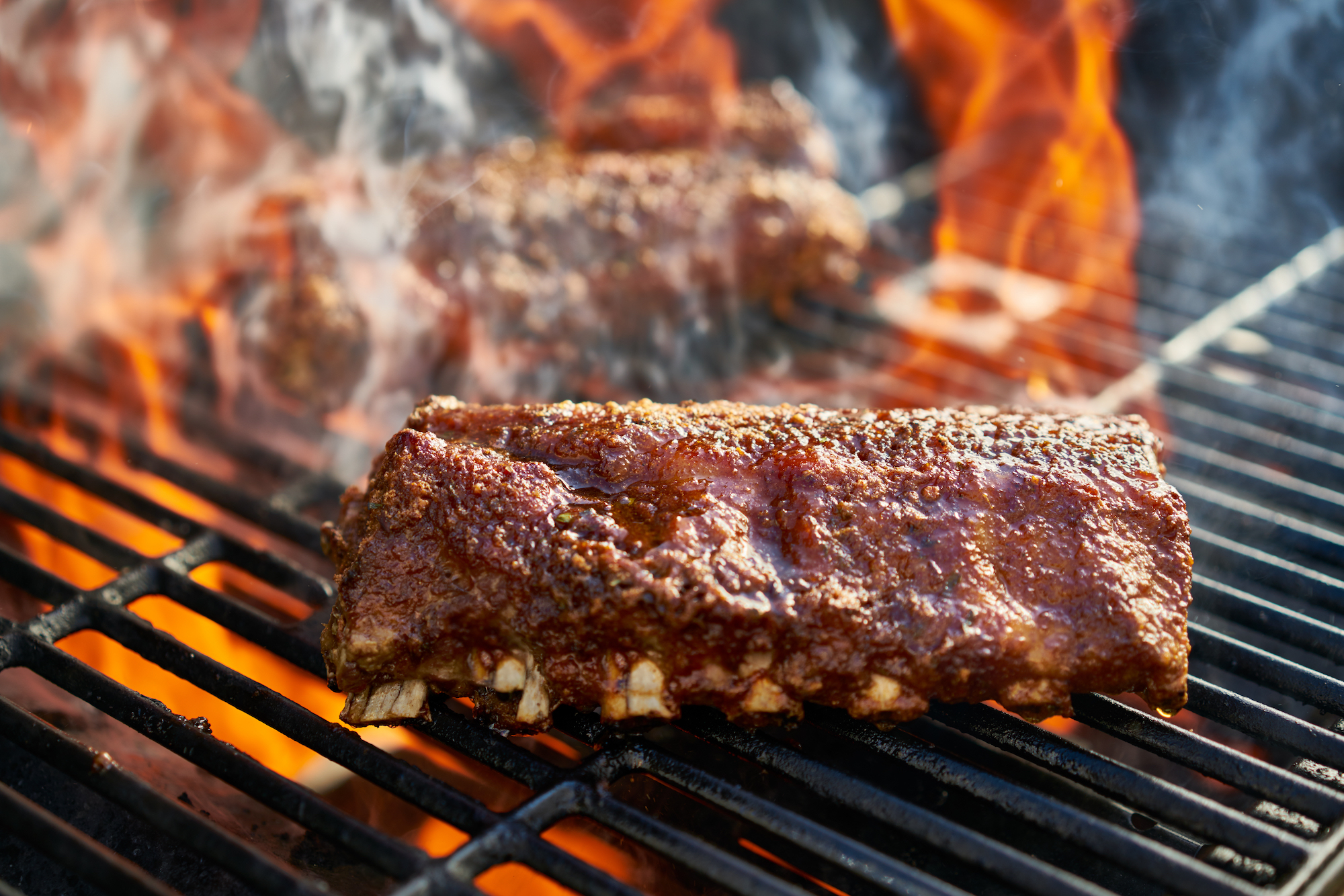The Truth About 'Meat Sweats,' According to Science

There's an old episode of "Friends" where Joey eats an entire Thanksgiving turkey in a single sitting.
"Whoof," Joey groans as he pushes the bare bird carcass away from his bloated person. "Here come the meat sweats."
Perhaps you know what Joey is talking about. Perhaps you've eaten one too many burgers at a summer barbecue, or taken one too many servings of ham at the holiday table, and then suddenly needed to change into drier clothes. Or perhaps you've just watched the annual Nathan's Hot Dog Eating Championship on TV and marveled at the profuse amounts of perspiration steaming off the contestants' faces as they shoved dog after dog into their herculean mouths.
As silly as they sound, "meat sweats" — the phenomenon of intense sweating that can follow an excessively meaty meal — sure seem real to those who've experienced them. But is there any science to back them up? Are meat sweats a real biological condition — and, if so, what makes meat so messy? [7 Foods Your Heart Will Hate]
While you won't find "meat sweats" mentioned in any medical dictionaries, you can find plenty of literature on the digestive mechanisms that make them possible. According to Keya Mukherjee, a biochemistry graduate student at Texas A&M University who specializes in carbohydrate metabolism, it all has to do with how your body breaks down protein.
"Proteins are extremely complex molecules and require a lot more energy than fats or carbohydrates to metabolize," or break down, Mukherjee told Live Science. "If you're eating a lot of protein in your diet and you're not eating much of anything else, your body will be producing a lot of energy and a lot of heat. Of course, this could result in sweating."
Metabolizing any type of food takes energy; one 2009 review of medical studies found that the body's energy use ratchets up by about 25 percent when digesting a big meal. As with exercise, that extra energy expenditure takes the form of heat. Expend enough energy digesting, and that heat can actually raise your core body temperature a bit. This is known as the "thermic effect of food," and it kicks in every time you digest.
Sign up for the Live Science daily newsletter now
Get the world’s most fascinating discoveries delivered straight to your inbox.
So, where does meat come in? Here's the rub: Different food types require different amounts of energy to break down — and protein, which meats are chock-full of, requires the most.
There are probably a few reasons behind this, Mukherjee said. One is that proteins are complicated molecules made up of lots of little chemical bonds. Each of those bonds needs to be broken by different types of enzymes before that protein can be metabolized. Creating all those enzymes takes some extra effort on your body's part.
Another reason may be that your body loves protein so much that it immediately uses the energy from digested proteins to start making new ones. "This process is also heat intensive," Mukherjee said.
Even the texture of meat can play a part in the resulting digestive battle. "Given the toughness of meat and its complexity, it needs to be chewed quite a bit before swallowing it," Mukherjee said. That means that more work goes into gnashing up each chunk of protein, which means more energy and heat are produced with every bite.
In other words, when professional competitive eater L.A. Beast told BuzzFeed that "eating a giant piece of meat is like going to the gym," he may not have been that far off.
So, a little bit of post-barbecue perspiration is nothing to worry about. Go ahead and grab a second (or third, or fourth) hot dog!
However, given that the meat sweats first entered public consciousness through competitive eating — a pastime that hinges on scarfing down way too much food, way too quickly — meat sweats should probably not be a regular part of your life, experts say. If they are, it may be a sign that your diet is out of balance, or that your body is not metabolizing food the way it should be, Mukherjee said.
"If you're regularly sweating profusely while you're eating," she said, "you may have other metabolic disorders that you should probably get checked out."
Maybe after one more burger.
Originally published on Live Science.

Brandon is the space/physics editor at Live Science. His writing has appeared in The Washington Post, Reader's Digest, CBS.com, the Richard Dawkins Foundation website and other outlets. He holds a bachelor's degree in creative writing from the University of Arizona, with minors in journalism and media arts. He enjoys writing most about space, geoscience and the mysteries of the universe.









